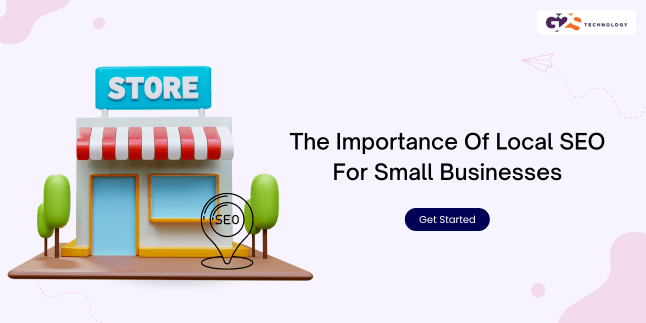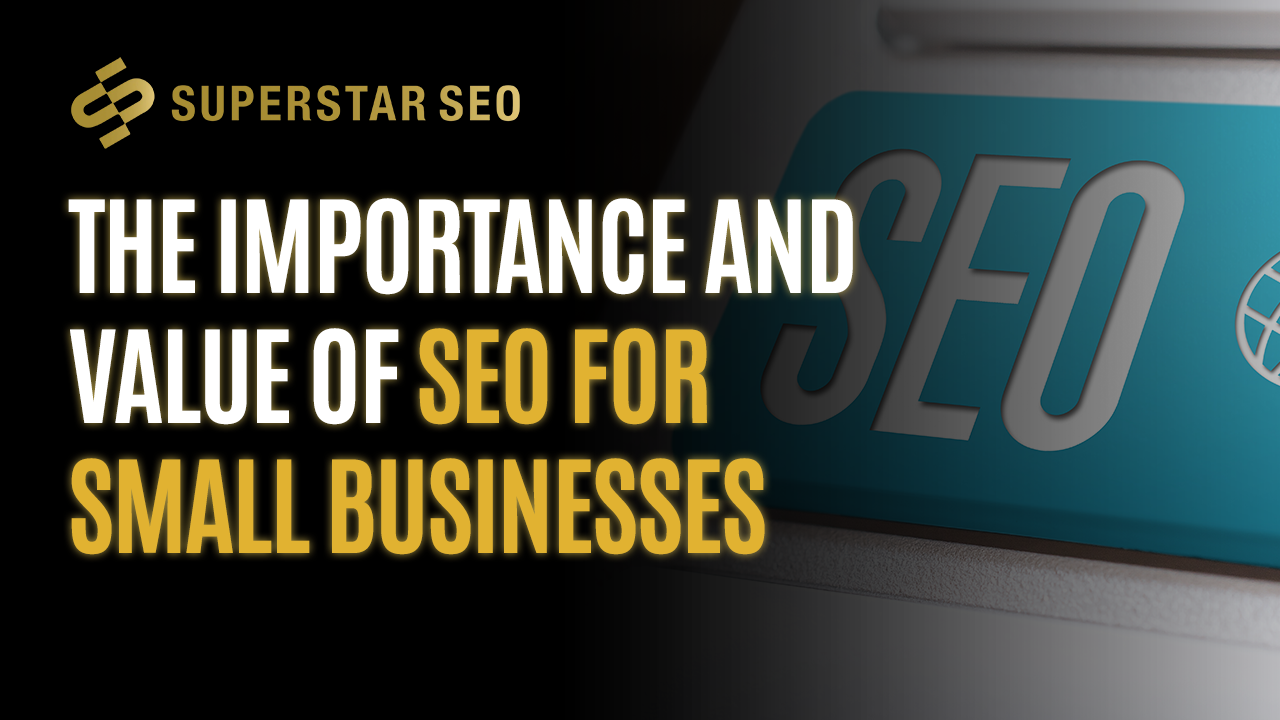The Importance and Value of SEO for Small Businesses
Small business’s have to use every tool in the box to compete. One of the biggest tool is Search Engine Optimization (SEO). SEO allows small business’s to increase their online presence, attract more customers and grow their brand. This article will look at why SEO matters for small business’s and why it’s a part of any digital marketing strategy.
Benefits of SEO for Small Businesses
1. User & Mobile Friendly Website
A big part of Search Engine Optimization is website usability. Search engines rank websites that are user friendly, mobile responsive and easy to navigate. For small business this means a site that loads fast, adapts to mobile devices and is streamlined for the user.
Not only does this improves the user experience but also the engagement metrics like time on site and bounce rate. These metrics directly impact search engine rankings so your website is more visible to your customers.
2. More Organic Traffic
SEO is about optimizing your site for the keywords your target audience is searching for. When done right this drives more organic (non paid) traffic to your website. For small business this means more organic visibility without having to spend big on paid advertising.
Organic search traffic is especially valuable because it brings users with high purchase intent. Ranking for the relevant search terms is crucial for small businesses. It can attract customers actively looking for their products or services.

3. Get Customers from Local Search
Local SEO is a big deal for small business that serve a local community. Optimizing for location based on search intent keywords and managing your Google My Business profile means your business will show up in local search results.
For example if you have a bakery in Dallas targeting phrases like “best bakery in Dallas” can get you local customers. Features like Google Maps listings and customer reviews also increases your visibility, drives foot traffic and local engagement.
4. Video & Content Marketing
SEO isn’t just for written content; it also optimizes multimedia like videos and blogs. By applying SEO to video titles, descriptions and keywords – small business can make their multimedia content more findable.
For example a small fitness studio can create tutorial videos on “beginner yoga poses” and optimize them for search engines. This attracts an audience interested in fitness and positions the studio as an authority in the niche, leads to more conversions.
5. Leads & Sales
SEO is a lead generation and sales tool. By optimizing your site for targeting keywords that match buyer intent you attract users ready to buy.
For example a small home renovation company can optimize for phrases like “affordable kitchen remodeling near me”. Such targeted traffic often results in higher quality leads and more sales, gives small business an edge over the competition.
6. Brand Awareness
Showing up in search engine results builds familiarity and trust with potential customers. Even if users don’t click on your site immediately repeated exposure reinforces your brand presence.
For small business this increased visibility positions the brand as an industry leader. Over time customers will associate your business with expertise in your niche, builds credibility and loyalty.
7. Better Conversion Rates
Websites optimized for SEO have better conversion rates. Why? Because SEO efforts prioritizes a seamless user experience.
From clear call-to-actions (CTAs) to fast load times these elements encourages visitors to take action – whether it’s filling out a contact form, subscribing to a newsletter or making a purchase. For small business this means more leads, sales and long term customer relationships.

8. Beat the Big Guys
SEO is a leveler for small businesses against big brands. Small business owners can focus on niche keywords and offering value-driven content. It will help small businesses to outperform competitors who neglect SEO.
For example, a small organic skincare brand can target long-tail keywords like “natural vegan face cream” and get a highly targeted audience. Consistency helps small businesses to rank higher and beat even the big guys in the market.
9. Affordable Marketing Strategy
Most small businesses has limited budget. Its not the end of the world. SEO is a cheaper alternative to expensive ad campaigns. The long term benefits of SEO outweigh the initial investment of time or resources.
Unlike paid ads which stop delivering results once the campaign ends, SEO gives you sustainable traffic and visibility. That makes it a smart and budget friendly option for small businesses looking to maximize ROI.
10. Encourages Long Term Growth
SEO isn’t just about quick wins. It’s a long term strategy that grows with your business. Once a small business has established an online presence through SEO, it requires far less effort than starting from scratch.
This steady growth helps small businesses build a loyal customer base. This expand their reach and achieve consistent revenue increases over time.
Small Business SEO Strategy
1. Build a Great Website
Your website should look good, be easy to use and fully functional on all devices. Clear navigation and fast loading times are key to keeping visitors and improving website rankings.
Focus on Core Web Vitals: Page load speed, interactivity and visual stability are key to SEO.
Mobile Friendly: Over 60% of searches are done on mobile.
2. Do Keyword Research
Keyword research is key to SEO.
Keyword Research Tools:
Google Keyword Planner: Free and easy to use for finding relevant keywords.
Ahrefs and SEMrush: Advanced tools for keyword competition and search volume.
Keyword Strategy:
Target long tail keywords specific to your niche (e.g. “affordable catering services in Miami”).
Focus on low competition high volume keywords for quick wins.
3. On-Page SEO Strategy
On-page SEO is optimizing individual pages to rank higher in SERPs.
Optimize:
Page Titles: Include primary keywords and under 60 characters.
Meta Descriptions: Write a compelling description under 160 characters to encourage click through.
Headers (H1, H2, H3): Use keyword rich headings to organize content for users and search engines.
Alt Text: Optimize image descriptions with keywords.
Internal Link building: Guide users to other parts of your site and strengthen page authority.
4. Local SEO
Local SEO Musts:
Claim and Optimize Your Google Business Profile (GBP): Make sure your profile has business hours, contact info and photos.
Ask for Online Reviews: Reviews can impact local search rankings.
Use Location Based Keywords: Include search term like “near me” and specific city names in your content.
Add Local Business Listings: Make sure information is consistent across platforms like Yelp, Bing Places and Yellow Pages.
5. Publish Regularly
Content is the foundation of SEO.
Best Practices:
Use the EEAT Framework:
Expertise: Include data and statistics.
Experience: Share case studies or real life examples.
Authoritativeness: Cite sources and get backlinks.
Transparency: Show sources and user reviews.
Content Types:
Blog posts about customer pain points.
Instructional videos and infographics.
FAQs for specific questions.
Content Tip: Break up long sections into bite sized chunks with bullet points, headers and visuals.
6. Build Your Link Profile
Internal Linking
Guide users deeper into your site and reduce bounce rates.
External Backlinks
Get credibility by getting links from authoritative sites in your industry.
Quick Backlink Ideas:
Partner with local businesses for mutual linking.
List your site in niche directories.
Guest post on relevant blogs.
7. Monitor Your SEO
Tools:
Google Analytics: Traffic, bounce rates and conversion rates.
Google Search Console: Indexing issues and keyword performance.
Metrics to track:
Organic traffic.
CTR for target keywords.
Conversion rate from organic traffic.
Frequently Asked Questions
How Long Until I See Results?
SEO is a long term investment and patience is key. Some minor changes like technical fixes can bring immediate results but noticeable and sustainable results take 3-6 months or longer. This depends on your niche, your strategy and your consistency. Monitoring and optimization is key to continued growth.
Can Small Businesses Do SEO Without an Agency?
Yes small businesses can do SEO themselves especially with the free tools available like Google Analytics, Google Search Console and Keyword Planner. By learning the basic SEO principles – meta tags, high quality content and link building strategy – businesses can improve their visibility. But for more complex tasks or to save time, hiring an agency can be beneficial.
What’s the difference between SEO and Local SEO?
SEO is about improving a website’s visibility on a national or global scale, targeting a broad audience. Local SEO is about targeting a specific geographic area and attracting local customers. Local SEO strategies include optimizing Google Business Profiles, using location specific keywords and acquiring local citations to increase a business’s presence in local search results.
How Often Should I Update My Website for SEO?
Regular updates are key to maintaining and improving your website’s SEO. Publishing fresh, organic content – blog posts, news articles or updates – tells search engines your site is active and relevant. Revisiting older pages to update information, fix broken links or improve keyword targeting helps keep them alive. Aim to update weekly or biweekly if possible.
Do I need to pay for ads for SEO?
No, paid ads are not necessary for SEO success but they can be a nice bonus. Paid ads provide immediate visibility and website traffic especially during the early stages of an SEO campaign when organic results take time to develop. When used together SEO and paid advertising can create a balanced strategy that drives short term and long term growth.
What are the most important SEO trends for 2025?
SEO in 2025 is evolving with the advancement of technology and user behavior. Key trends include optimizing for voice search, mobile first indexing and using AI to deliver relevant content. Creating authoritative and engaging content and improving page speed and user experience is still top priority. Being ahead in these areas will give you an edge.
Is SEO worth it for small business?
Yes. For small business SEO is one of the most cost effective way to attract customers and build brand visibility over time. Unlike paid advertising which stops yielding results once the budget runs out, SEO provides long term growth. By improving your website’s organic search engine ranking you can reach your target audience without constantly spending on ads, it’s a long term investment.
Conclusion
In summary, SEO for small business is massive. From visibility and credibility to traffic and user experience, SEO has so many benefits that can make a big impact on your business.
By investing in SEO small business can stay ahead, know their customers better and grow long term. In a digital first world, SEO is not an option but a must for small business to survive.





